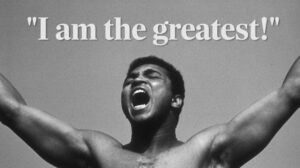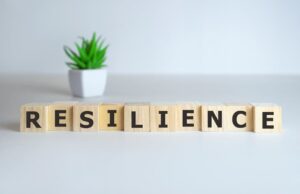Developing mental toughness for peak performance
Introduction:
When I’m running a marathon, there comes the point where I feel like I’ve hit a wall. My body is aching, my legs feel like lead, and it seems like there’s no energy left in me to take the next step. In those moments, I remember the powerful quote from Rafael Nadal: ‘ Mental toughness is when you can find fuel in an empty tank.’

These words resonate with me deeply because they remind me that my mind is my most powerful tool. Despite feeling physically drained, I can tap into a well of mental strength that allows me to push through the pain and keep going. When I make the decision not to give up, something shifts within me, and I find reserves of energy that I never knew existed.
In those moments, I realize that mental toughness isn’t just about physical endurance; it’s about the power of the mind to overcome the limits of the body. By finding the strength to keep going when everything in me is screaming to stop, I am tapping into the true essence of mental toughness – “resilience and determination that can overcome any obstacle.”
Similarly, as a young student pursuing my PhD in Microbiology at the prestigious Indian Agricultural Research Institute (IARI) in New Delhi, I often found myself daydreaming about a different kind of future for myself. I had always been fascinated by the idea of public service and dreamed of one day becoming an Indian Police Service (IPS) officer.
Determined to make my dreams a reality, I began to study for the Civil Services Examination. The process was long and arduous, and there were many moments when I felt overwhelmed and discouraged. But I refused to give up. I knew that if I wanted to succeed, I needed to cultivate a deep sense of mental toughness and resilience.

That’s when I turned to yoga nidra, a powerful technique of deep relaxation that can help calm the mind and increase focus. Every day, I would spend an hour in deep trance, visualizing myself acing the UPSC exams and becoming an IPS officer. I imagined myself walking confidently into the exam hall, answering every question with ease and grace. I saw myself standing tall and proud in my uniform, serving my country with honour and distinction.
 At first, it was difficult to quiet my mind and focus on my visualization practice. But over time, I found that it became easier and easier to slip into a deep state of relaxation and mental clarity. I began to feel more confident and focused than ever before.
At first, it was difficult to quiet my mind and focus on my visualization practice. But over time, I found that it became easier and easier to slip into a deep state of relaxation and mental clarity. I began to feel more confident and focused than ever before.
And then, one day, it happened. I received the news that I had passed the UPSC exams with flying colours. Eventually, I was selected to join the prestigious Indian Police Service. I was overjoyed and overwhelmed with emotion. I knew that all of my hard work and dedication had paid off, and that my visualization practice had played a key role in helping me achieve my dreams
Today, as an IPS officer having served my country with pride and honor, I often think back on those early days at IARI and smile. I know that I never would have made it this far without the mental toughness and resilience that I developed through my daily visualization practice. It just goes to show that with hard work, dedication, and a little bit of visualization, anything is possible.
What Is Mental Toughness?
Mental toughness is a term used to describe a person’s ability to overcome adversity, push through challenges, and maintain a strong and resilient mindset in the face of obstacles. It involves having a strong sense of purpose, perseverance, and resilience in the face of difficult circumstances.

Mentally tough individuals are able to stay focused and motivated, even in the face of setbacks, and they are able to maintain a positive attitude and outlook, even when things are tough. They are able to manage stress, regulate their emotions, and stay calm under pressure, allowing them to perform at their best even in high-stress situations.
Ultimately, mental toughness is about having the inner strength to push through difficulties and achieve their goals, even when the odds are against them. It’s an essential quality for success in many areas of life, including sports, business, and personal relationships. Mental toughness requires the development of specific skills and strategies that help individuals overcome adversity and perform at their best. Here, we will explore various techniques for developing mental toughness, including visualization, goal-setting, positive self-talk, mindfulness, and self-awareness.
Developing Mental Toughness:
The science of developing mental toughness is a complex and multidisciplinary field that draws from psychology, neuroscience, and sports science, among other areas of study. Here are some key insights from this field:

Practice: Mental toughness, like any skill, can be developed and strengthened with practice. Consistent exposure to challenging situations and deliberate practice of mental toughness skills can help to build resilience and improve performance.
Cognitive restructuring: One of the key strategies for developing mental toughness is cognitive restructuring. This involves changing the way we think about challenging situations and reframing them in a more positive light. For example, instead of viewing a setback as a failure, we can see it as an opportunity for growth and learning.
Visualization: Visualization is a powerful tool for developing mental toughness. It involves creating vivid mental images of success, which can help athletes or individuals visualize themselves performing at their best. Visualization helps develop mental toughness by allowing individuals to focus on their goals and envision themselves overcoming obstacles. For example, a tennis player may visualize themselves hitting perfect shots or winning important matches. Similarly, a public speaker may visualize themselves delivering a flawless speech or presentation. When it comes to visualization and mental toughness there can’t be a better example than the retired US Navy Seal David Goggins.
David Goggins is widely regarded as one of the toughest human beings on the planet. But his path to greatness was far from easy. Growing up in rural Indiana, Goggins faced numerous challenges, including poverty, racism, and abuse. He struggled in school and dropped out of college, and for a time, he worked as a pest control technician to make ends meet.
 But Goggins refused to let his circumstances define him. In his mid-twenties, he decided to join the United States Navy, where he became a Navy SEAL. And that was just the beginning.
But Goggins refused to let his circumstances define him. In his mid-twenties, he decided to join the United States Navy, where he became a Navy SEAL. And that was just the beginning.
Over the years, Goggins has pushed his body and mind to the limit, setting records in some of the most grueling endurance events in the world. He’s run ultramarathons, completed Ironman triathlons, and even set the Guinness World Record for the most pull-ups in 24 hours.
But what sets Goggins apart is not just his physical prowess, but his mental toughness. He has repeatedly demonstrated the ability to push past pain, discomfort, and fear to achieve his goals.
One of the techniques that Goggins used to develop this mental toughness was visualization. He would imagine himself overcoming his fears and pushing past his limits, even when his body was screaming for him to stop.
This visualization practice allowed Goggins to develop the mental resilience that he needed to conquer his fears and push himself to new heights. It helped him to stay focused and motivated, even in the face of seemingly insurmountable challenges.
Today, Goggins is an inspiration to millions of people around the world. His story is a testament to the power of hard work, determination, and visualization. It’s proof that with the right mindset and attitude, anything is possible.
Goal-Setting:
Setting goals is a crucial aspect of developing mental toughness. Goals help individuals to focus their energy and efforts towards achieving specific outcomes. By setting realistic and achievable goals, individuals can build confidence and self-belief, which are essential for mental toughness. For instance, a salesperson may set a goal of achieving a certain number of sales each month. In the book Grit: The Power of Passion and Perseverance” by Angela Duckworth: The author explores the concept of grit, which Duckworth defines as “a combination of passion and perseverance for long-term goals.” Through research and real-life examples, she shows how mental toughness and a growth mindset can help individuals achieve success in any field. By consistently meeting or exceeding these goals, the individual builds resilience and mental toughness.
In 2022, I set myself a daunting goal of running four marathons in four successive weeks to raise funds for the Tanker Foundation. The foundation had planned to equip all the police stations in TamilNadu with BP monitoring machines to prevent kidney disease amongst police personnel. Initially, I knew this goal would require a significant amount of physical and mental endurance, but I was driven by the cause and meaning behind it.

My motivation came from knowing that my efforts would make a meaningful contribution to a cause that I believed in. This purpose and meaning gave me the mental toughness needed to push through the challenges I faced during my training and the actual marathons.
Throughout the four weeks, I encountered various obstacles, such as muscle fatigue, blisters, and mental exhaustion. However, knowing the reason behind why I was doing this gave me the motivation to persevere. I remained focused and resilient in the face of adversity, which helped me complete all four marathons.
In summary, my story highlights the importance of setting meaningful goals that align with one’s values and beliefs. When a goal has a higher purpose and meaning, it can help individuals develop the mental toughness needed to overcome obstacles and achieve success.
Positive Self-Talk:
Positive self-talk is another powerful tool for developing mental toughness. It involves using positive affirmations and self-talk to build confidence, motivation, and resilience. Positive self-talk can help individuals overcome negative thoughts or doubts and maintain a positive mindset. By using positive and empowering self-talk, individuals can overcome self-doubt, boost their confidence, and stay focused on their goals even in the face of adversity.
One great example of the power of self-talk can be seen in the story of Muhammad Ali, one of the greatest boxers of all time. Ali was known for his confident and often brash personality, but behind his words was a deep belief in himself and his abilities. He used positive self-talk to build up his confidence and maintain his focus, even in the midst of intense pressure and competition.

One famous example of Ali’s use of self-talk came before his 1974 fight against George Foreman, known as the “Rumble in the Jungle.” Ali was considered the underdog going into the fight, and many doubted his ability to win against the powerful Foreman. However, Ali used positive self-talk to build up his confidence and maintain his focus.
In an interview before the fight, Ali famously declared, “I am the greatest! I said that even before I knew I was. I figured that if I said it enough, I would convince the world that I really was the greatest.” He repeated this phrase over and over again in the weeks leading up to the fight, using it to build his self-belief and drown out any doubts or fears.
During the fight itself, Ali employed a strategy known as the “rope-a-dope,” in which he leaned against the ropes and absorbed Foreman’s punches while conserving his energy. Despite taking a beating in the early rounds, Ali remained calm and focused, using positive self-talk to stay confident and maintain his composure.
In the eighth round, Ali saw an opening and delivered a series of devastating punches that knocked Foreman out and secured his victory. His use of positive self-talk and mental toughness allowed him to overcome his doubts and fears, and achieve one of the greatest upsets in boxing history.
This example shows how self-talk can be a game changer for mental toughness, allowing individuals to build their confidence and maintain their focus even in the face of intense pressure and competition. By using positive and empowering self-talk, individuals can overcome self-doubt, boost their resilience, and achieve their goals.
Mindfulness:
Mindfulness is a technique that involves focusing on the present moment and paying attention to one’s thoughts and feelings without judgment. Mindfulness can help individuals develop mental toughness by increasing self-awareness and improving focus. By being more aware of their thoughts and feelings, individuals can identify and overcome negative thinking patterns and distractions. For instance, a business leader may use mindfulness techniques to stay focused during a critical meeting or negotiation.
Self-Awareness:
Self-awareness is an essential aspect of developing mental toughness. It involves understanding one’s strengths, weaknesses, and emotions. By being aware of their limitations and emotions, individuals can develop strategies to overcome challenges and maintain focus. Self-awareness can also help individuals identify and address potential obstacles before they arise. For example, a student may be aware of their tendency to procrastinate and develop strategies to overcome this behavior.
Physical fitness:
Physical fitness and exercise have been shown to have a positive impact on mental toughness. Regular exercise can help to reduce stress and anxiety, improve cognitive function, and increase resilience.
Overall, developing mental toughness involves a combination of psychological, cognitive, and physical strategies. By practicing these techniques and exposing ourselves to challenging situations, we can build resilience, improve performance, and achieve our goals.
Mental toughness can be developed by following the “7 Cs” framework. The 7 Cs framework for developing mental toughness was developed by Dr. Jim Loehr, a world-renowned performance psychologist and author. Loehr is known for his work with top athletes, executives, and organizations, helping them to achieve high levels of performance and success through the development of mental toughness. The 7 Cs framework is based on Loehr’s extensive research and experience working with individuals and teams in a variety of settings, and has been widely adopted as a framework for developing mental toughness in both personal and professional contexts. Here’s what each “C” stands for:

Control: Mental toughness requires a sense of control over oneself and one’s environment. This means taking responsibility for one’s thoughts and emotions, and focusing on what can be controlled rather than what cannot.
Commitment: Mental toughness requires a strong commitment to one’s goals and values. This involves setting clear goals, creating a plan of action, and staying the course even when faced with obstacles or setbacks.
Challenge: Mental toughness requires embracing challenges and viewing them as opportunities for growth and learning. This involves stepping out of one’s comfort zone and pushing oneself to new levels of performance.
Confidence: Mental toughness requires a sense of self-confidence and belief in one’s abilities. This involves developing a positive mindset and cultivating a strong sense of self-efficacy.
Composure: Mental toughness requires the ability to stay calm and composed in the face of adversity. This involves developing emotional regulation skills, such as mindfulness and deep breathing, and maintaining mental clarity and focus under pressure.
Consistency: Mental toughness requires a consistent and disciplined approach to one’s goals and values. This involves developing a strong work ethic, setting and maintaining daily habits, and staying focused on long-term objectives.
Courage: Mental toughness requires courage to take risks, confront fears, and overcome obstacles. This involves developing a sense of bravery and determination to face challenges head-on and persevere in the face of adversity.
I think , William Wallace in the movie Braveheart embodies the 7 Cs framework for developing mental toughness. Here is why I think so.

Control: William Wallace demonstrates a sense of control over his emotions and actions, even in the face of great personal loss and injustice. He remains focused on his goals and values, and uses his emotions to fuel his determination rather than letting them control him.
Commitment: William Wallace is deeply committed to his cause of fighting for Scottish independence from English rule. He sets clear goals for himself and his fellow Scots, and stays the course even when faced with immense challenges and setbacks.
Challenge: William Wallace embraces challenges and sees them as opportunities for growth and learning. He is willing to take on the formidable English army, even though he and his fellow Scots are vastly outnumbered and outmatched.
Confidence: William Wallace has a strong sense of self-confidence and belief in his abilities. He inspires his fellow Scots to believe in themselves and their cause, and leads them into battle with a sense of conviction and purpose.
Composure: William Wallace maintains composure and mental clarity even in the heat of battle. He stays calm under pressure, and is able to think clearly and strategically even in the midst of chaos and danger.
Consistency: William Wallace demonstrates consistency and discipline in his approach to his goals and values. He is steadfast in his commitment to Scottish independence, and is willing to make sacrifices and endure hardships to achieve it.
Courage: William Wallace displays great courage and bravery in the face of his opponents. He is willing to take on the might of the English army, and is prepared to put his own life on the line for the sake of his cause and his fellow Scots.
Overall, William Wallace is a powerful example of how the 7 Cs framework for developing mental toughness can be applied in a variety of contexts, from sports to politics to personal struggles. By cultivating these qualities, individuals can build the resilience and determination needed to overcome obstacles and achieve their goals.
By following the 7 Cs framework, individuals can develop the qualities needed to build mental toughness and achieve their goals, both in their personal and professional lives.
KEY CHARACTERISTICS OF MENTALLY TOUGH PEOPLE
Mental toughness is a combination of attitudes, behaviors, and traits that enable a person to cope effectively with challenges, stress, and adversity. To become mentally tough, it’s important to hack some key characteristics of mentally tough people such as :
Resilience: Mentally tough individuals are able to bounce back from setbacks and failures. They see challenges as opportunities for growth and learning, rather than as insurmountable obstacles.
Positive attitude: Mentally tough individuals tend to have a positive outlook on life. They are optimistic and believe in their ability to overcome challenges and achieve their goals.
Persistence: Mentally tough individuals are persistent in the face of difficulty. They don’t give up easily, and they keep pushing themselves to achieve their objectives.
Emotional control: Mentally tough individuals are able to manage their emotions effectively. They don’t let negative emotions like anger, fear, or anxiety get the better of them.
Focus: Mentally tough individuals are able to maintain focus and concentrate on the task at hand, even in the midst of distractions or obstacles.
Adaptability: Mentally tough individuals are able to adapt to changing circumstances and situations. They are flexible and open to new ideas and approaches.
Self-confidence: Mentally tough individuals have a strong sense of self-confidence and belief in their abilities. They trust themselves to succeed, even in challenging situations.
Discipline: Mentally tough individuals are disciplined in their approach to life. They have a strong work ethic and are willing to put in the time and effort required to achieve their goals.
Courage: Mentally tough individuals have the courage to face their fears and take risks. They are not afraid of failure, and they are willing to step outside of their comfort zones to achieve success.
Overall, mentally tough individuals have a combination of inner strength, resilience, and positive mindset that enable them to overcome challenges and achieve their goals.
How does mental toughness translate to peak performance?
Mental toughness is a key factor in achieving peak performance, as it helps individuals to overcome challenges, maintain focus and motivation, and perform at their best under pressure. Here are a few ways in which mental toughness can translate to peak performance:
Increased Resilience: Mentally tough individuals are able to bounce back quickly from setbacks, using their strength and determination to overcome obstacles and keep moving forward. This resilience helps them to stay focused on their goals, even when faced with difficult circumstances.
Improved Focus and Concentration: Mental toughness allows individuals to stay focused on the task at hand, even in the face of distractions or challenges. This helps them to maintain their concentration, avoid errors, and perform at their best.
Enhanced Motivation: Mentally tough individuals are driven by a strong sense of purpose and motivation, which helps them to push through difficulties and stay committed to their goals. This motivation translates into peak performance, as they are able to maintain their intensity and drive even in the face of adversity.
Better Stress Management: Mental toughness helps individuals to manage stress and anxiety, allowing them to stay calm and focused even in high-pressure situations. This enables them to perform at their best, without succumbing to stress-related distractions or performance anxiety.
Overall, mental toughness is a crucial component of peak performance, as it helps individuals to overcome obstacles, stay focused and motivated, and achieve their goals even in the face of adversity.
Biohacking mental toughness for peak performance
Biohacking is the process of using science, technology, and personal experimentation to optimize the human body and mind. Here are some ways to biohack mental toughness for peak performance:

Meditation: Practicing meditation has been shown to increase mental toughness by improving focus, reducing stress and anxiety, and enhancing self-awareness. Start with a few minutes of meditation each day and gradually increase the duration.
Breathing Techniques: Breathing exercises, such as deep breathing or box breathing, can help to calm the mind, reduce stress, and improve focus. Incorporate breathing techniques into your daily routine or use them as a tool to manage stress during high-pressure situations.
Cold Exposure: Exposure to cold temperatures has been shown to improve mental toughness by increasing resilience to stress and enhancing focus and concentration. Try taking cold showers or incorporating cold exposure into your workout routine.
Nutrition: Eating a healthy diet rich in nutrients and antioxidants can help to improve brain function and mental toughness. Incorporate foods such as leafy greens, nuts, and berries into your diet and avoid processed foods and sugar.
Exercise: Regular exercise has been shown to increase mental toughness by improving mood, reducing stress, and enhancing focus and concentration. Incorporate both aerobic and strength training exercises into your routine for optimal benefits.
Positive Self-Talk: Positive self-talk can help to improve mental toughness by building confidence, reducing stress, and enhancing focus. Use positive affirmations and visualization techniques to reframe negative thoughts and improve your mindset.
Overall, biohacking mental toughness involves experimenting with different techniques and practices to optimize your mental and emotional well-being and improve your performance in all areas of life.
Conclusion:
Developing mental toughness is essential for achieving peak performance in any field. It requires the cultivation of specific skills and strategies, including visualization, goal-setting, positive self-talk, mindfulness, and self-awareness. By practicing these techniques, individuals can overcome adversity, maintain focus, and achieve their goals. Examples of some of the world’s mentally toughest individuals highlight the importance of developing mental toughness and provide inspiration for those looking to cultivate this trait.
 Dr K. Jayanth Murali is a retired IPS officer and a Life Coach. He is the author of four books, including the best-selling 42 Mondays. He is passionate about painting, farming, and long-distance running. He has run several marathons and has two entries in the Asian book of Records in full and half marathon categories. He lives with his family in Chennai, India. When he is not running, he is either writing or chilling with a book.
Dr K. Jayanth Murali is a retired IPS officer and a Life Coach. He is the author of four books, including the best-selling 42 Mondays. He is passionate about painting, farming, and long-distance running. He has run several marathons and has two entries in the Asian book of Records in full and half marathon categories. He lives with his family in Chennai, India. When he is not running, he is either writing or chilling with a book.
